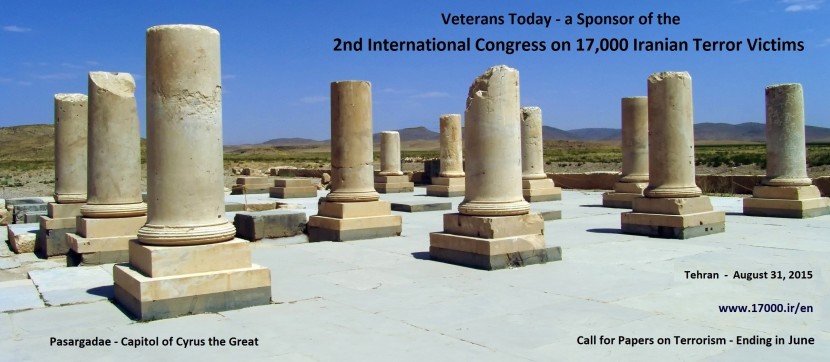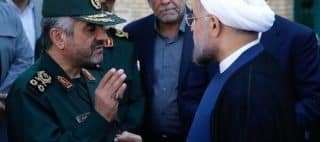Gordon Duff and I have been invited to this Iran terrorism conference that honors its 17,000 victim families. We have already submitted our terrorism research papers and hope to make a good showing. Now that the nuclear talks are over, the mood should be upbeat.
_______________
by Petr Lvov, with New Eastern Outlook, Moscow
The seven golden domes of St. Petersburg[ Editors Note: Petr Lvov gives us a good rundown on the highlight of the nuclear agreement, something I love to have others do. It gives me more time for reviewing his analysis, which surprised me today because his past work has been excellent. I had my doubts, but when Petr closes with “Iran is heading West” and might apply for provisional EU status, I had to put the brakes on.
There is a world of difference between opening to the West and “heading West”, as Petr says. China opened to the West and so did Russia, which got involved in all kinds of European and Western forums to promote stability and have good relations with its customers. But as we see with Putin’s 89% approval rating, the West’s color revolution is not working out too well in Russia, and the NGO trojan horses are having their legs shackled, compared to former times.
I also disagree with Petr’s prediction that the Iran regime signed its death warrant with this agreement, or that they themselves have invited a color revolution into the country, which Western investment coming in will make irreversible. That did not happen in China, India, or Russia most of all.
Iran’s gas pipeline agreement through Iraq has been signed, but it is economically going to be paid for with badly-needed supplies to Iraq. There are many hurdles and many years of work before Iran sells a dollar of pipeline gas to Europe. This theme has been around for some time, and Rouhani once answered it quite simply — that Iran has no desire to push Russia out of Europe, but just obtain a market in the future growth of Europe’s gas demand.
The base economics are simple. Russia has a $110B trade deficit with the EU, approximately the value of how much energy it sells them, so the trade balance does not require a huge currency imbalance. Oil is the currency; and with Iran it will be the same. It wants to sell at least enough gas to pay for all the things it is buying from the EU. Besides, in five years the huge Russian gas deals with China will start cash flowing to cover any expected diversification in EU supplies, which the Russian gas industry has stated as its long term goal.
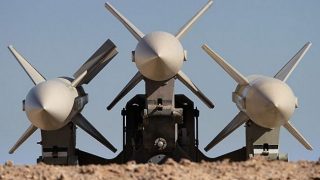
As for arms, Iran is doing well with its missile development, and I am not sure what the agreement says about licensing technology. Iran became committed during the sanction period to rely on itself for key long term defensive weapons.
Iran wants the Western companies in as the best human shield from future problems with the Zionists, as Iran will have a substantial EU business lobby to tell Israel to “take a hike” for a change.
Sure, Iran’s modernization is going to bring changes with it, but the religious anchor of the country will remain. If the West tries to subvert them, I expect to see a lot of people arrested for subversion and put on trial. Iran and Iraq are going to build much closer relations, with Iran’s western defense border being Iraq’s, with its own missile cover.
Israel is going to become an economic backwater, but remain active in welcoming financial criminals, money launderers, nuclear proliferators, market manipulators and of course arms salesmen. But it is eventually going to have northern neighbors who will have not only aircover but a retaliatory capability… after decades of living under the guns of the militant Zionists… Jim W. Dean ]
_______________________________
– First published … July 16, 2015 –
It is now official that the final agreement on the Iranian nuclear program has been signed in Vienna on July 14. The agreement provides a plan for the gradual lift of sanctions in exchange for more than ten years of restrictions on Iran’s nuclear development.
Additionally, the arms embargo against Iran will not be lifted over the next five years.
At the same time, restrictions on the supply of missiles should remain intact for eight more years. This issue was one of the major points of contention during negotiations. Iran was urging the West to lift the embargo on the supply of materials sensitive for its further nuclear activities and the development of ballistic missiles, along with the restriction on the import of arms and related materials.
Russia supported Iran in its demands, but Western countries have raised the concern that Iran would be able to increase its military support of Shia militia units in Iraq and Yemen, along with helping Syria’s president Bashar al-Assad out.
At the same time, Iran has agreed with the so-called «snapback» scenario, according to which the sanction regime may be reimposed within 65 days if Tehran violates an agreement in limiting its nuclear capabilities.
Under the agreement signed, IAEA inspectors will have access to all sites in Iran that may be deemed suspicious, including military installations. The UN Security Council resolution on the withdrawal of sanctions can be adopted within a month. The agreement also imposes restrictions on uranium enrichment for a period of eight years.
In the future, Tehran may proceed with its programs of uranium enrichment, but only for peaceful purposes. In addition, Iran must reconstruct the reactor at the facility in Arak for it to be able to serve only peaceful purposes.
Should Iran “behave well” in the next 10 years, its nuclear program will be taken off from the agenda of the UN Security Council. At the time there’s a total of seven UN Security Council resolutions that were adopted due to the Iranian nuclear dossier.
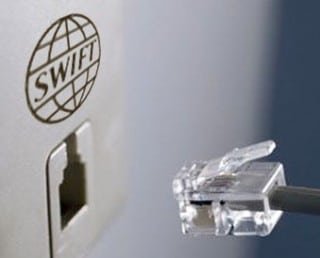
In exchange, Tehran will enjoy the removal of international sanctions that were imposed by both the UN Security Council, and by individual states. Iran has already been granted access to the system of international financial transfers – SWIFT. But everything else will take much longer.
The sanctions will be removed gradually, in tune with the fulfillment of Tehran’s promises. But, in principle, by the end of 2015, all trade, economic and financial constraints that were affecting the Iranian economy must be removed completely, including oil trade and investments in the Iranian economy. This last part is going to be particularly profitable for the West.
But Russia gains next to nothing from this whole story: restrictions on the shipment of weapons will last five more years and that is all Moscow has to offer. Russia won’t be able to overtake Western companies in the supply of advanced technological products to Iranian markets. And in the height of anti-Russian sanctions, Moscow has nothing to put on the table in terms of foreign investments.
Therefore oil and gas sectors of the Iranian economy will be sponsored by the West, which will enable Tehran to increase the output of hydrocarbons. In little time, it will be capable of supplying the EU with gas through newly built pipelines. This step would deliver a serious blow to the positions of Gazprom in Southern Europe.
Nothing has been won in political terms as well, since the European missile defense program is not going to be affected by this deal and the positive role that the Russian Federation has been playing in facilitating the negotiations will not change the sanctions regime against Russia. Although, Moscow has received a positive response from President Obama, who praised Russian diplomacy “for its great contribution in this agreement.”
What does all this mean in strategic terms? The agreement on the Iranian nuclear program is in fact an achievement of historical significance, since Iran is making a U-turn to seek rapprochement with the US and the EU. The experiment of the Islamic Revolution is over and it has failed. And the winners are the West, the sitting Iranian President Hassan Rouhani and his pro-Western liberal team. And one could predict this happening due to the moods of the overwhelming majority in Iranian society.
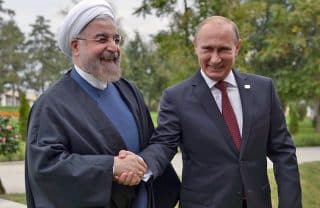
The population is tired of the hardships that have been brought forward by international sanctions. Iran’s economy has been experiencing a long period of stagnation.
The government can hardly fund social programs anymore and the youth, which accounts to over 50% of the population of the country, refuses to understand why it has to live according to the religious concepts of Ayatollah Khomeini instead of following the modern technological and cultural developments that are adopted across the world.
If Iranian government refused to change its ways, it would face a “color” revolution brought around by Western propaganda and the fact that Iran is a multinational state where the rights of minorities are not always respected. Hence the religious establishment led by Ayatollah Khomeini began realizing that the ideas of the Islamic Revolution have lost their appeal. Therefore, Tehran had little choice other than making significant concessions in the negotiations in Vienna.
It is clear that from now on all hopes of a quick recovery of the Iranian economy are attached to Western corporations. Moreover, a number of large American and European corporations have already held secret talks with Iranian officials on the conditions of their return to Iran.
In a few years, if not months, the political system in Iran is to be changed, since the religious establishment will be forced to leave in order to give way to a modern administration. It is possible that Iran will pursue the status of an associate member of the EU. But this does not mean that Iran will immediately abandon Iraq, Syria and Yemen.
But yet another thing is perfectly clear, Russia is not nearly as attractive as a partner for Tehran, as it was before the nuclear deal was signed. It is just incapable to compete with Western corporations in the fight for the Iranian economy. As for weapons shipments they are not going to be allowed for 5 more years. But for a while Iranians will be playing the Russian card against the West to get rid of all restrictions as soon as they can.
In any case, the game is almost over. This country is now clearly heading for the West. However, it has to fight for a place in the Western orbit with its Arab neighbors, especially Saudi Arabia. But that is another question. Washington is able to influence its allies in such a way that two arch enemies of yesterday may soon prove to be allies in the Persian Gulf. Regardless, the region of the Middle East must prepare for the coming changes.
Peter Lvov, Ph.D in political science, exclusively for the online magazine “New Eastern Outlook”.
_________________________________

Jim W. Dean was an active editor on VT from 2010-2022. He was involved in operations, development, and writing, plus an active schedule of TV and radio interviews.
ATTENTION READERS
We See The World From All Sides and Want YOU To Be Fully InformedIn fact, intentional disinformation is a disgraceful scourge in media today. So to assuage any possible errant incorrect information posted herein, we strongly encourage you to seek corroboration from other non-VT sources before forming an educated opinion.
About VT - Policies & Disclosures - Comment Policy

